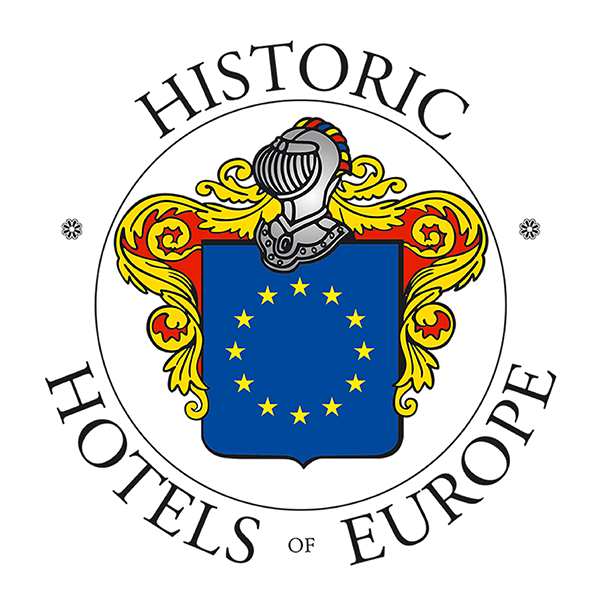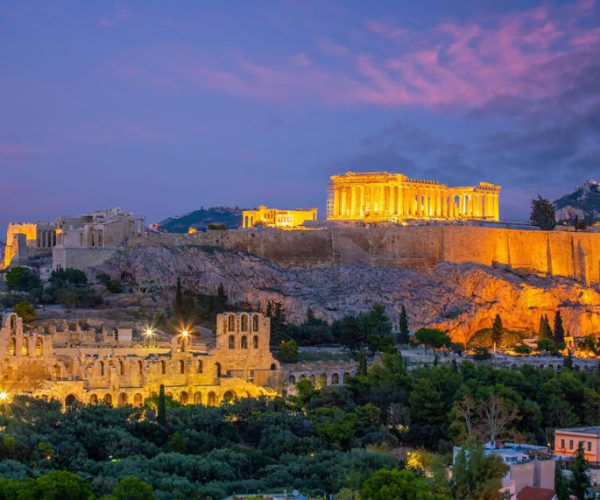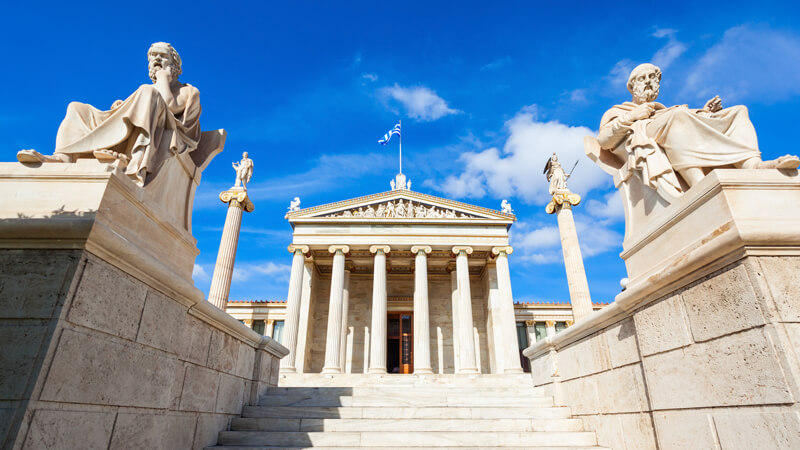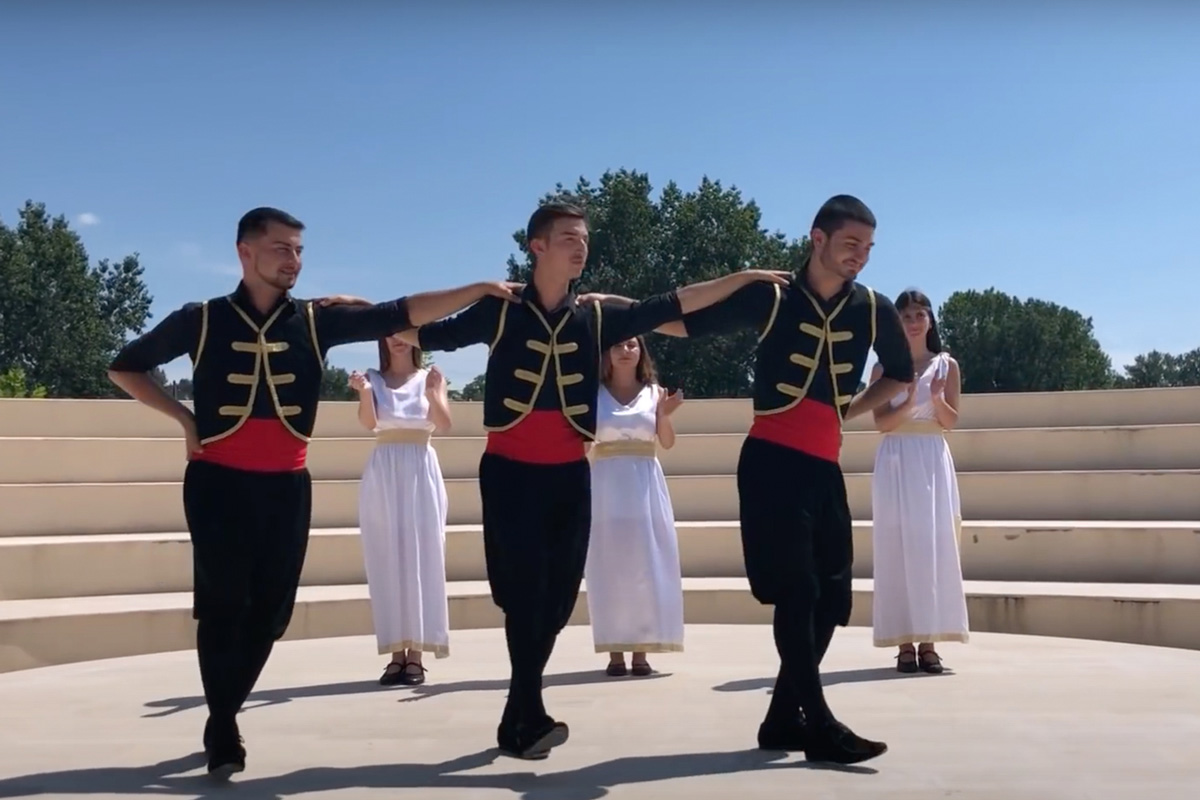TRADITIONAL GREEK DANCES
Step (lively) back in time…
Kalamatianos, a festive folk dance, is the national dance of Greece. First mentioned in the early writings of Homer, participants move in a circle while holding hands. Sirtaki is another well-known dance… though it only dates back to the 1960s, as it was created specifically for the movie Zorba the Greek! Dancers create a line or circle, place their hands on their neighbor’s shoulders, and move in rhythm together.





